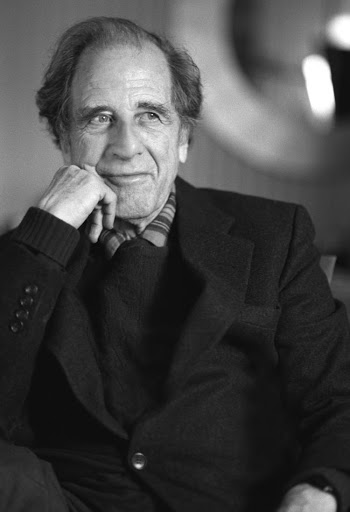
[ad_1]
Lukas Foss and Emilio de’ Cavalieri, 2023
This Week in Classical Music: August 14, 2023. Lukas Foss andEmilio de’ Cavalieri. The richness and variety of classical music is sort of infinite. In fact, we’re not speaking concerning the false, woke range of race and gender. We imply the variety of sound, organized by composers of various eras into wonderful mixtures that we name “music,” mixtures of the aural entities so totally different that composers of yesteryears wouldn’t even acknowledge the work of their  followers as belonging to the identical artwork (if they’d take into account it artwork in any respect). We, however, are fortunate to have entry to this monumental physique of labor and may take pleasure in music composed within the 15th century as a lot as music from half a millennium later. We’ve two composers this week, one born within the first half of the 20th century, and one other – in the midst of the 15th.
followers as belonging to the identical artwork (if they’d take into account it artwork in any respect). We, however, are fortunate to have entry to this monumental physique of labor and may take pleasure in music composed within the 15th century as a lot as music from half a millennium later. We’ve two composers this week, one born within the first half of the 20th century, and one other – in the midst of the 15th.
Lukas Foss was born in Berlin on August fifteenth of 1922 as Lukas Fuchs. His household was Jewish, and as quickly as Nazis got here to energy, the Fuchses emigrated to France and 4 years later to the US the place they modified their title to Foss. Within the US, Lukas, who studied music whereas in Paris, went to the Curtis Institute the place he took piano courses, composition, and conducting (his instructor on the Curtis was Fritz Reiner). Lukas began composing at seven, and in 1945, at 23, he grew to become the youngest composer ever to obtain a Guggenheim Fellowship. In 1953 Foss was appointed Professor of Music at UCLA, a place beforehand occupied by Arnold Schoenberg. Whereas in California, Foss based the Improvisation Chamber Ensemble and have become the music director of the Ojai Competition. Later he served because the music director of a number of orchestras: the Buffalo Philharmonic, the Brooklyn Philharmonic, and the Milwaukee Symphony. He additionally guest-conducted many European and American orchestras.
Musicologists divide the event of Foss’s artwork into three phases: neo-classical; transitional, which was dominated by what he referred to as “managed improvisation,” and the third, experimental, much more improvisational, with extra freedom given to the performer, and the forays into serialism. Let’s pay attention to 2 items, 13 Methods Of Wanting At A Blackbird for voice (mezzo-soprano RoseMarie Freni) and small ensemble from 1978, right here; and, from 1967, sadly in a relatively low-quality recording, his nice Baroque Variations for Orchestra: I. On a Handel Larghetto, II. On a Scarlatti Sonata, III. On a Bach Prelude “Phorion” (right here). The Buffalo Philharmonic Orchestra is led by the composer Lukas Foss, was one of the attention-grabbing American composers, and we’ll come again to his artwork one other time
Italian composer Emilio de’ Cavalieri was born in Rome in 1550 into an illustrious household. His father, a nobleman Tommaso Cavalieri, was the good love of Michelangelo’s life (Michelangelo devoted 30 of his sonnets to Emilio and referred to as him “mild of our century, paragon of all of the world”). After they met, Tommaso was 23 and really good-looking, Michelangelo – 57 years outdated; whether or not the connection was platonic or not, we don’t know. Emilio’s mom was a cousin of Cardinal Andrea della Valle. The cardinal was one of many first collectors of Roman artwork; the sculptures within the courtyard of his palace throughout the road from the church of Sant’Andrea della Valle had been restored in one of many first efforts of its type, and his antiquities had been described by Vasari. We’ll proceed with the story of Emilio de’ Cavalier subsequent week. Within the meantime, let’s pay attention to Cavalieri’s fantastic Viae Sion Lugent from Lamentations.
[ad_2]